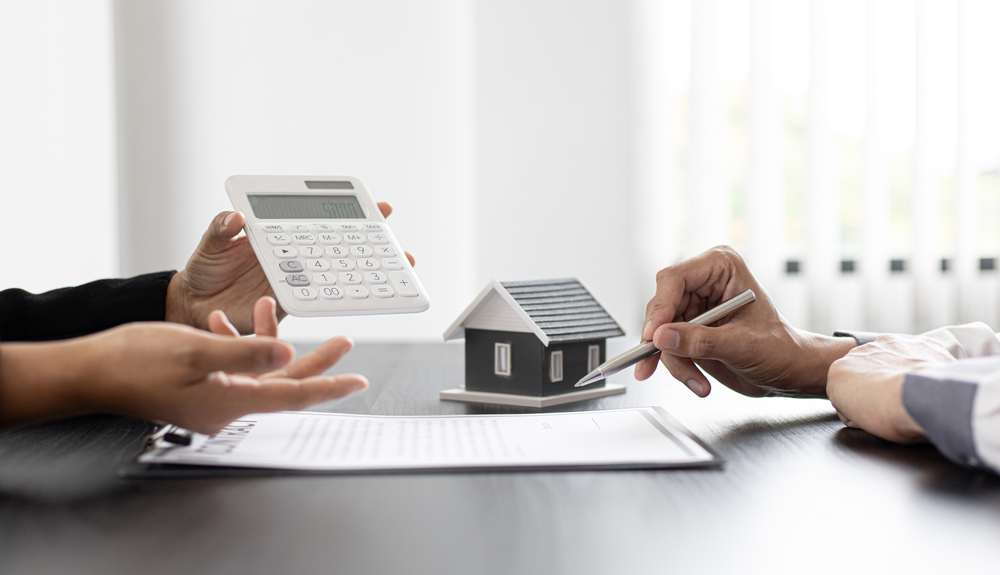If you’re thinking of selling your home, you would like to figure out how much does it cost to sell a house. In the United States, the typical cost of selling a home is between 10% and 15% of the sale price. This covers the expense of preparing the home for sale, the cost of hiring movers, the cost of real estate agent commissions and fees, and the cost of making any necessary repairs.
For instance, at 15%, the cost of selling a $250,000 home might be as high as $37,500. Of course, each circumstance is different, thus your costs will differ. This article will give you a general idea of how much does it cost to sell a house so you can be prepared and make plans for your new home.
How much does it cost to sell a house?
In most property markets, a lack of homes for sale gives sellers an edge, but many home sellers are unaware that selling their homes still costs money. All or part of the costs that come with selling a home can be agreed upon, but sellers should expect to pay for some of them. Real estate commissions and other costs can account for up to 10% of a home’s sale price. Here’s a rundown of all the expenses sellers should budget for:
1- Real estate commission
If you sell a home, the real estate commission is usually the most costly fee you pay. It can cost you between five and six percent of the sale price. There may be a fee of $15,000 if you sell your house for $250,000.
Each of the real estate agents for both the buyer and seller takes part in a share of the commission. According to the National Association of Realtors, the seller bears this fee in the vast majority of situations. However, you might be able to negotiate a lesser commission. When the home is projected to sell soon, the local market is strong, or the home price is relatively high, real estate brokers are more inclined to accept a lower fee.
2- Pre-sale home inspection
A pre-sale house inspection is completely optional and can cost up to $400. Some sellers invest because they want to know whether the house has any structural or mechanical issues before a potential buyer arrives with his or her home inspector. Getting a pre-sale inspection allows you to perform costly repairs ahead of time, reducing the risk of a buyer requiring them later or requesting a price reduction.
Consult your real estate agent to see if a pre-sale house inspection is necessary. Keep in mind that, depending on your state’s disclosure regulations, you may be required to report major flaws with your house to a buyer if your inspection reveals them.
3- Home repairs
If you’re thinking about selling your home, there are probably some things you can do to make it more appealing and maybe increase its worth. Now is the moment to spruce up the front of your home, paint the interior, or repair a stairway or a leaking faucet if you’ve been putting it off.
In addition, if the buyer’s house inspector discovers defects such as a leaky roof or faulty plumbing, you may be required to pay to repair those issues in order to complete the transaction. Large repairs can be costly, so budget for them before you decide to sell, especially if you expect problems to surface during a house inspection.
4- Home staging
Buyers prefer to imagine what a home will look like once they move in, so if you’re a seller, investing in cosmetic improvements like fresh, neutral paint and new flooring is important.
According to the National Association of Realtors, 28% of seller’s agents indicated they staged their properties before listing. While you can perform some staging yourself, it may be more cost-effective to hire a professional. Stagers do whatever it takes to highlight a home’s outstanding characteristics while minimizing its flaws. They declutter and depersonalize the house by rearranging furniture and accessories. They might even repurpose space in a way you hadn’t considered.
A professional stager’s fee is determined by the size of the home, the scope of the work, the length of time the house has been on the market, and other criteria. Budget at least a few hundred dollars. “Staging is normally advantageous when the property is empty,” says the realtor, “but it may be very expensive depending on the furnishings and the price of the house.”
5- Mortgage payoff
Your mortgage will be paid off with the proceeds of your house sale, but the payoff amount on your mortgage statement is likely to be less than what you actually owe. You’ll almost certainly have to add prorated interest to the overall debt. Additionally, if your mortgage has a prepayment penalty, you may be required to pay a fee. Check your loan documentation or call your current lender to see if this condition is included in your loan.
6- Closing costs and additional fees
Many closing fees are borne by the buyer in a real estate transaction, but there are other closing charges paid by the seller.If you’re trying to sell your house in a buyer’s market, don’t be surprised if you’re requested to cover part of the buyer’s expenditures as well (one which has a lot of homes for sale).
Homeowners association fees, property taxes, attorney fees, transfer taxes, and title insurance are examples of these charges. You may be charged an escrow cost, a brokerage fee, and a courier fee as well. Many of these charges are negotiable, and it’s doubtful that a seller will be responsible for them entirely. Even so, being prepared is beneficial.
7- Capital gains tax
Remember to include in taxes. A capital gain occurs when you sell a home for more than you paid for it, and it may be required to be declared on your federal tax return.
The good news is that many homeowners can deduct up to $250,000 in profit ($500,000 for married couples filing jointly) from their primary residence from their taxes if they haven’t used the tax break on another house sale in the previous two years. If it was your primary residence for at least two of the previous five years, you are eligible for tax relief.
8- Property tax
Property taxes, which vary depending on whether they are escrowed into their mortgage, should also be considered by sellers. Taxes on real estate are frequently paid in advance. The seller shall pay the prorated share of property taxes up to the closing date, and the funds should be deposited in escrow.
If you’re selling your house and have already paid your taxes for the year, you might be eligible for a refund at closing. The buyer shall reimburse the seller for any taxes that have already been paid but are due after the closing date.
How CashBuyersNy can help you
CashBuyersNY can buy your house quickly and make you a full cash offer within 24 hours, or we can buy it when it’s convenient for you. You’ll love dealing with us because we’re investors and issue solvers who can buy houses and fix problems at the same time.
For over a decade, our company has been purchasing homes in the New York market. So you can trust us if you want to sell a house fast in New York City (NYC). CashBuyersNY specializes in assisting New York residents with simple property buying procedures on their own schedule. You can contact us now or also can get an offer if you are ready to sell the house fast in NY for cash.






